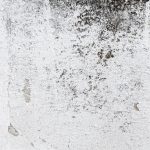
Living in Florida has its perks—sunshine, ocean breezes, and beautiful coastal towns like Naples, Bonita Springs, Marco Island, and Estero. But with all that humidity, mold is a serious issue. And when it comes to dealing with mold as a property owner or landlord, knowing the legal landscape in Florida is crucial. Whether you’re trying to rent out a home, sell a property, or just make sure your living space is safe, this article will help you understand your rights and responsibilities under Florida’s mold laws.
Why Mold Is a Big Deal in Florida
Due to Florida’s humid climate, mold issues are more common than in many other states. When left untreated, mold can cause health problems like allergies, respiratory issues, and even serious long-term illness for those with weakened immune systems. Mold also damages walls, ceilings, and HVAC systems, leading to costly repairs.
For landlords and homeowners, the presence of mold can bring legal trouble, especially if a tenant or buyer believes you failed to address the issue properly.
What the Law Says (and Doesn’t Say)
Florida doesn’t have a sweeping, standalone mold law, but mold is addressed under several state statutes and building codes. Here are the main legal points homeowners and landlords should understand:
1. Landlord-Tenant Law (Florida Statutes 83.51)
Landlords are legally required to maintain the property in a condition that is “habitable.” This includes plumbing, roofing, and structural elements that could contribute to moisture buildup and mold. If mold makes the home unsafe or unlivable, the landlord may be in violation of this statute.
2. Disclosure Laws for Sellers
While Florida law doesn’t specifically require you to disclose mold when selling a home, it does require the disclosure of any known material defects. That means if you know there’s mold, or if a past inspection report found signs of it, you must disclose that to a potential buyer.
3. No Mandatory Mold Limits or Testing
Unlike states like California, Florida does not have official mold exposure limits or required mold testing for residential homes. This means there’s a gray area—making it even more important to take mold complaints seriously and document everything.
Mold Laws and Renters: What Tenants Can Do
Tenants living in cities like Estero or Marco Island can take action if mold is affecting their health or safety. Florida allows renters to:
- Send written notice to the landlord requesting repairs.
- Withhold rent if the landlord does not make reasonable efforts to fix the problem (as long as they follow the correct legal procedure).
- Break the lease if the home is considered uninhabitable due to mold.
As a landlord, ignoring a mold complaint can open the door to legal claims for breach of contract or even negligence.
How Homeowners Can Protect Themselves
Homeowners in Bonita Springs or Naples may think they’re off the hook if they’re not renting out their property, but mold problems can still create legal and financial issues. Here’s how to stay protected:
- Get a mold inspection before selling your home or after a flood or major plumbing leak.
- Fix leaks quickly to prevent moisture buildup.
- Hire licensed professionals for mold remediation (like QCI).
- Document all repairs and inspections in case of future claims.
What About Insurance?
Mold insurance coverage in Florida varies. Some homeowner insurance policies cover mold damage if it was caused by a covered peril (like a burst pipe). However, many policies exclude mold altogether unless you purchase an add-on.
Landlords and homeowners should review their policy and consider adding mold protection if they live in high-risk areas like Naples or Marco Island.
Why Work with a Professional Mold Company?
Because mold cases can get complicated fast—especially when legal issues are involved—it’s critical to work with a qualified, experienced mold remediation company. At QCI, we offer:
- Professional mold inspections using infrared and moisture detection tools
- Green, chemical-free remediation technology
- Air quality testing to ensure a safe environment
- Expert witness consulting for legal disputes
We’ve served homeowners and landlords across Naples, Bonita Springs, Estero, and Marco Island for years, helping them solve mold problems and avoid costly legal pitfalls.
Get Local Help from QCI
QCI is based in Naples, Florida, and proudly serves all surrounding cities in Collier and Lee County. If you’re a landlord or homeowner concerned about mold laws—or just need help solving a current mold issue—we’re here for you.
📍 Proudly Serving: Naples, Marco Island, Bonita Springs, Estero, and surrounding areas in Collier and Lee Counties.
📞 Call Us: (239) 777-2875
🌐 Website: www.qci-online.com
Don’t Wait for Mold to Become a Lawsuit
If you suspect mold or have received complaints from a tenant or buyer, don’t wait. Early action can prevent health problems, property damage, and legal complications. Whether you’re in Bonita Springs, Estero, or right here in Naples, QCI is your trusted mold expert.
Call us today or visit qci-online.com to schedule your inspection or remediation.






